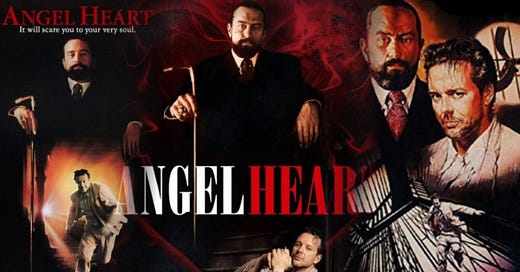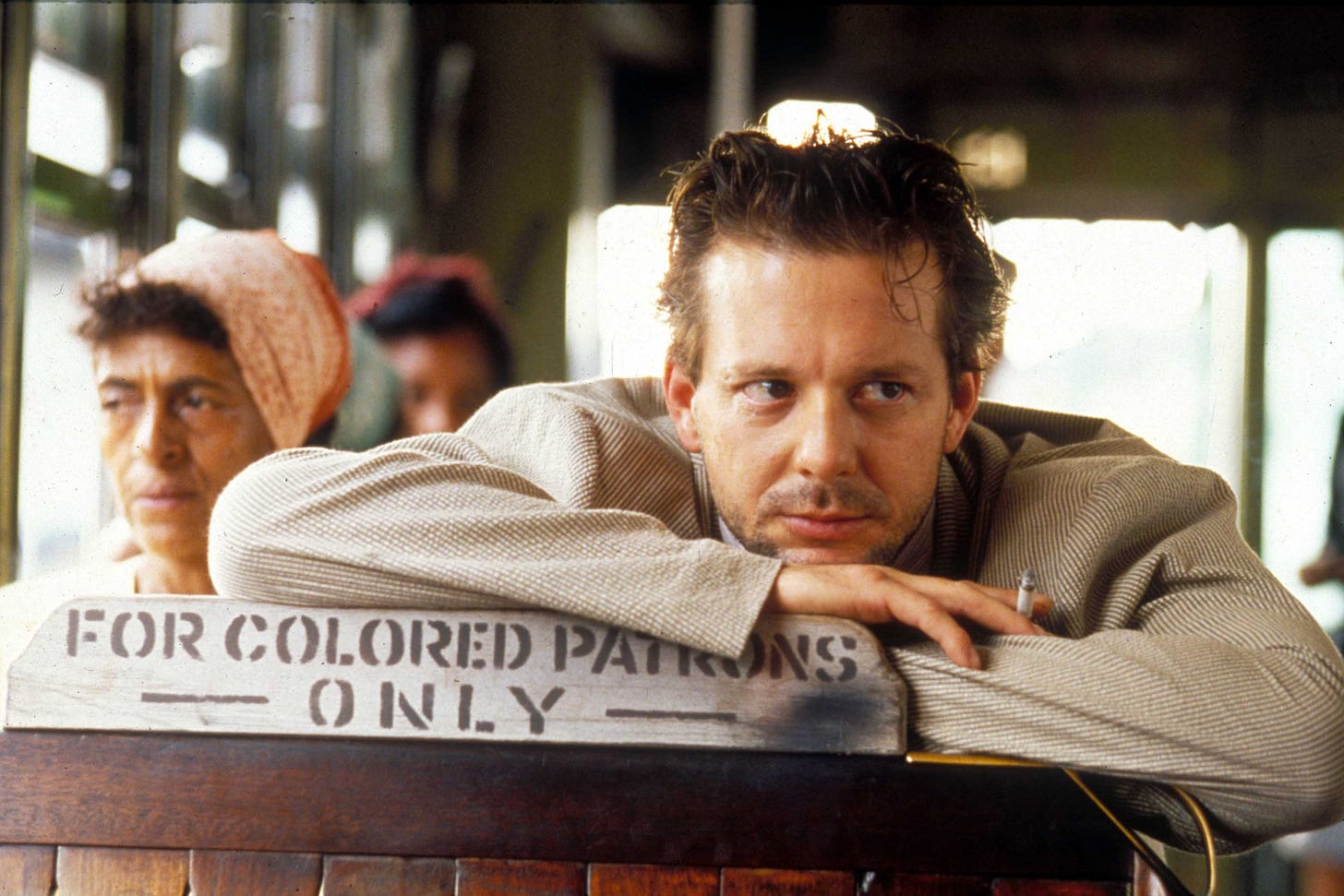For the last few years, I have used October to give myself a viewing assignment: a different horror film each day. Now that I have escaped the real life horror of New Zealand’s public service, I intend to write a piece inspired by each film.
My fourth film is Alan Parker’s Angel Heart (1987).
My second foray into the world of Voodoo during October is a world away from my first for the month. Most of the action in Angel Heart takes place in New Orleans, one of the most cinematic cities in the world and one with an even greater pop cultural association with Voodoo than Haiti. What’s more, the director Alan Parker, an Englishman best known for Pink Floyd’s The Wall, is quite a few degrees removed from the colonial, religious and racial context.
Mickey Rourke plays Harry Angel, a private detective in 1950s Brooklyn who is hired by a mysterious man named Louis Cyphre (Robert De Niro) to track down a missing crooner who goes by the name of Johnny Favorite. His search takes him all the way down to New Orleans and into the arms of a teenager named Epiphany Proudfoot (Lisa Bonet, fresh from The Cosby Show). If the character names haven’t given it away, Parker demonstrates here the same weakness for on-the-nose symbolism that made his Pink Floyd-collab such a Freudian onslaught. The film is packed to the gills with dialogue and imagery related to religion, animals and race that it transcends obviousness to become a sort of thematic gumbo (I deleted and rewrote this line so many times before I was brave enough to include it).
However, for all its self-serious ridiculousness, Angel Heart (much like The Wall) absolutely whips.
Taking its noir premise all the way into the (literal) depths of the soul, Angel Heart’s interest in religion is decently nuanced. The conspiracy may involve Voodoo practitioners, but Parker treats Voodoo as a genuine religion in a world that is just as packed with Baptist and Catholic imagery. When Harry mocks Epiphany after a ceremony involving chicken sacrifice, she snipes back “Nailing a man to a cross ain't so cute either!” This is a case wheret the director’s distance from the subject matter may be an advantage rather than a disadvantage.
One of the things that makes Harry such an interesting protagonist is his ability to traverse all these different worlds. As a man from a state without (legislated) segregation, he feels perfectly comfortable working in black spaces. As a self-proclaimed Atheist, he views himself as a detached observer to the religious intrigue before him. Unfortunately, he is a noir protagonist so I don’t think any spoiler warning is necessary when I say that he isn’t able to maintain this distance.
I’ll try not to make another gumbo reference but it is important to note that in the world of the film, separateness is a construct. For all the ways it is demonised in America and Europe, Voodoo is a religion with a syncretic relationship with Christianity. Most Voodoo practitioners self-identify as Catholic after all. In Angel Heart though, the Devil does everything he can to trick people into separating themselves by race and religion.
Here, Satan is perfectly comfortable behaving himself in a Catholic Church, telling Harry “They say there's enough religion to make men hate each other but not love.”






